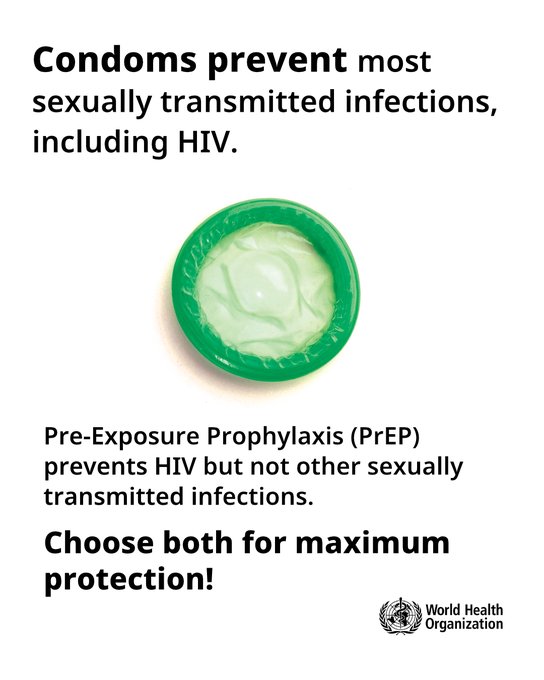GENEVA, Switzerland – As the world observes International Condom Day on February 13, the World Health Organization (WHO) is urging a renewed commitment to condom use—not just as a protective barrier but as a cost-effective tool for safer, healthier, and more confident sexual experiences.
With a sharp rise in sexually transmitted infections (STIs), unintended pregnancies, and concerns over global sexual health, WHO is emphasizing the importance of condoms in providing triple protection against HIV, STIs, and unplanned pregnancies.
The organization is calling on individuals, communities, and healthcare providers to re-engage, re-invigorate, and re-educate people on the benefits of consistent and correct condom use.
Despite advancements in other forms of protection, condoms remain one of the most accessible and effective options.
WHO highlights that ensuring widespread access and education about condom use is essential in empowering individuals to make informed decisions about their sexual health.
“Condoms are more than just a barrier; they are a key tool in promoting safety, confidence, and well-being in sexual health choices,” WHO stated in its global appeal.
Condoms prevent most sexually transmitted infections, including HIV.Pre-Exposure Prophylaxis (PrEP) prevents HIV but not other sexually transmitted infections. Choose both for maximum protection! bit.ly/4hzlj7e
International Condom Day, observed annually on the eve of Valentine’s Day, serves as a reminder of the ongoing need to prioritize sexual health.
WHO, alongside global health partners and community organizations, is using this occasion to advocate for increased awareness, education, and accessibility to condoms worldwide.




